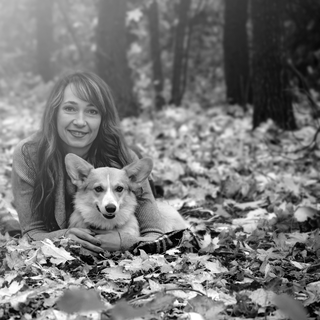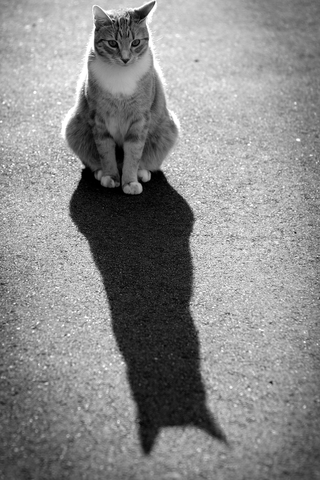Grief
How People Grieve the Loss of a Pet
Grieving the loss, especially after euthanasia, can be challenging.
Posted September 14, 2021 Reviewed by Abigail Fagan
Key points
- Grief is a common and natural response to pet loss—whether the loss is due to natural causes, an accident, or euthanasia.
- Research on how people grieve pet loss has identified five themes: human-pet bonds, grief, guilt, support networks, and future of pet ownership.
- Grieving the loss of a pet presents unique challenges, including lack of social acceptance for grieving and guilt around pet euthanasia.

Research suggests there are physical and mental health benefits to owning a pet. Interacting with service animals (animals that assist patients with disabilities and chronic conditions) also appears to be beneficial.
Unfortunately, these relationships sometimes end abruptly or tragically—such as when a pet dies or a helper animal has to be put down. As with any major loss, a period of suffering and grief is expected. But grieving the loss of a pet presents its own challenges; one such challenge is the lack of agreed-upon burial rituals and the problem of disenfranchised grief (grief not socially acknowledged or mourned publicly).
Below, I discuss a recent study in press in the journal Death Studies, by Cleary and colleagues, that further explores how people grieve the loss of a pet. The systematic review included 17 investigations—2,331 participants (1,728 females); age range of 18-91 years; mostly dog and cat owners.
An analysis of the data identified five themes:
1. Relationship with the pet
A common theme was the importance of the bond between people and their companion animals (pets) or assistance animals (helper or service animals, like guide dogs).
The strength of the human-animal bond came from the pets “being present during major life events like divorce or miscarriage,” providing “unconditional love and acceptance,” meeting their owners’ needs (e.g., keeping them company, easing their stress), and “being a dependable teammate during times of conflict.”
In fact, a number of pet owners felt it was impossible to replace a pet—almost in the same way it was impossible to replace a child.
Some considered their relationship with their pet mainly through the lens of caregiving, of the responsibility and joy of taking care of their pets. Others emphasized care-receiving, as in the case of assistance animals allowing their handlers to become more independent; or pets being there for their owners when the owners were feeling lonely or recovering from an illness.
2. Grieving pet loss
The grief pet owners felt included both psychological and physical symptoms (e.g., feelings of emptiness and sadness, loss of appetite). The severity of the grief depended on multiple factors, such as the owner’s other responsibilities (e.g., young children), previous experiences with pet loss and bereavement, and the animal type—e.g., losing a dog, cat, or pig was often more painful than losing a fish or snake.
A variety of grief reactions were noted: avoidance, trying to see pets as replaceable, seeing grief as a necessary continuation of the love for and the bond with the deceased pet, etc.
To sense the presence of their deceased pets in their lives, participants reported using various practices: burial rituals, home altars, writing poetry, making donations, keeping their pet’s belongings around, setting aside time to remember their pets, and so forth.
3. Animal euthanasia and guilt
Euthanizing a pet with a terminal illness and a poor quality of life—even when it seems like the right thing to do—is not an easy decision.
Many individuals who had ended the life of their pet experienced guilt and self-blame. Those who did not feel guilty and experienced no doubts concerning the appropriateness of their decision still reported feeling sadness for the loss.
Anticipatory grief was common too, occurring in situations where the pet owners had anticipated having to euthanize their pet and thus had begun psychologically preparing for it (e.g., pets being given special treats more often, pets being allowed to sleep in their owner’s bed).
4. Support networks
What numerous pet owners found helpful during the process of bereavement was the ability to talk about how they felt with support groups, friends, family, counselors, social workers, and especially veterinarians. Yet not all vets were considered supportive. Criticisms of vets included poor communication, lack of compassion, and questionable judgments regarding diagnosis, treatment, and pain management.
Support groups were helpful in a variety of ways. For instance, strong support networks not only helped validate people’s grief but also provided the bereaved individuals with ways to keep busy (i.e. less free time to ruminate on their loss).
5. The future
Some participants reported learning positive lessons from the experience of grieving a pet’s death.
These positive lessons included, “perseverance and resilience,” “feeling closer to family and others,” “development of self-reliance, courage and personal strength,” “a stronger appreciation of life,” and “the cherishing of memories.”
Though fewer, negative reactions were reported too; for example, being unable to move past the grief (i.e. stuck in chronic anxiety and depression), struggling to cope with grief triggers (e.g., dog parks), and losing one’s faith after the loss.
As for the future and possibility of new pets, this was inevitable for patients with chronic health conditions who relied on helper animals. However, even in this group, not waiting a sufficient length of time before getting a new pet was sometimes associated with a sense of guilt.
Of those who had lost companion animals and pets, some said they would never get a new pet, while others felt the deceased pet was “replaceable” in the sense that “they could not live without a pet” or they hoped a new pet would “fill the void.”

How to cope with losing a pet
If you have lost a pet, allow yourself sufficient time to grieve. Dealing with pet loss can be painful, but grief is a natural response to the loss of a valued relationship, whether with humans or animals.
In short, validate and honor your grief.
Furthermore, remember that guilt is common in bereavement. You might experience guilt whether your pet died of natural causes or you had to put down your pet for compassionate reasons.
If you are alone and do not have any informal social support (e.g., family, friends), consider joining support groups or seeking formal social support (e.g., psychotherapists, social workers).
Also, consider self-help books (these include books for children dealing with pet loss).
Last but not least, remember to take care of yourself while you grieve.
Facebook image: fongbeerredhot/Shutterstock




